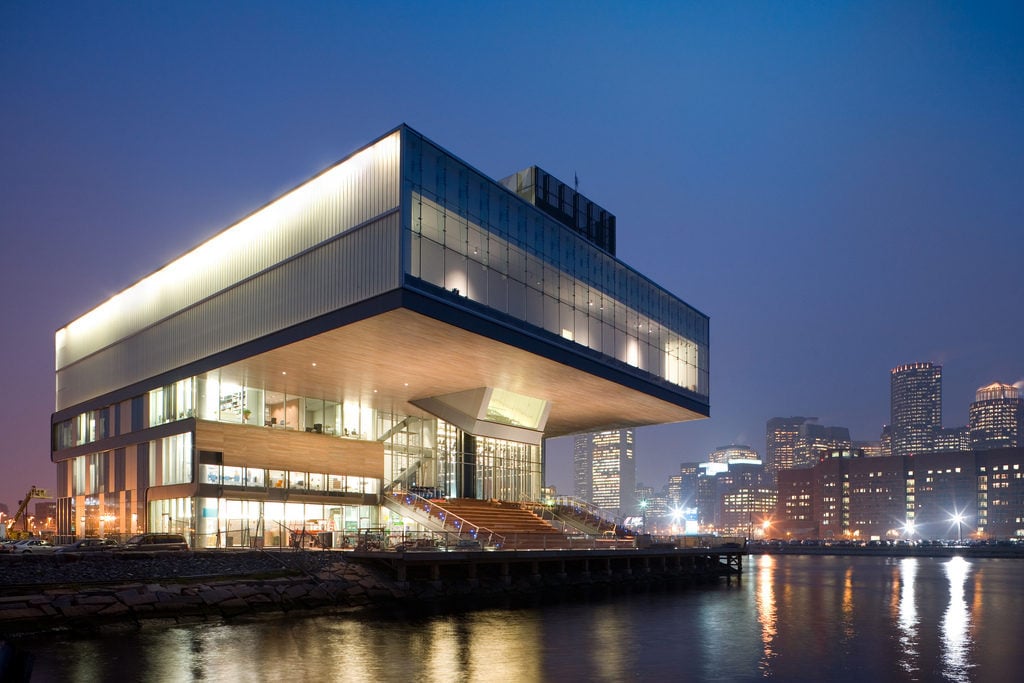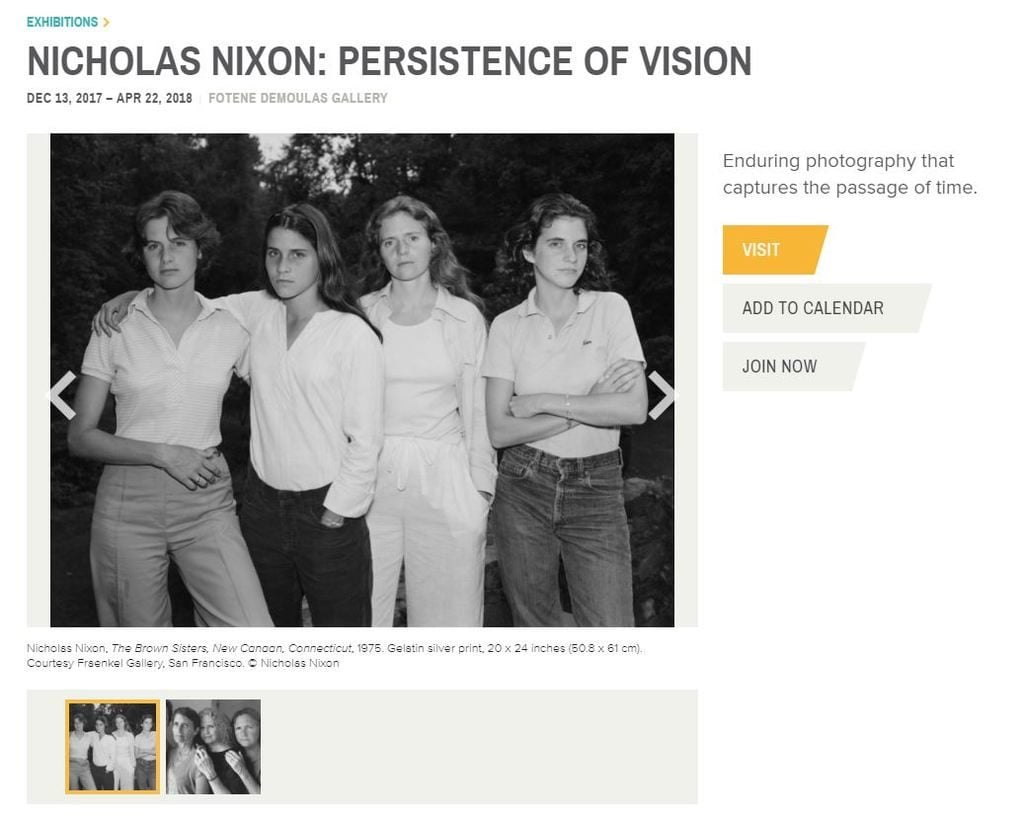Art World
Artist Nicholas Nixon Asked the ICA Boston to Shut Down His Show Amid Uproar Over Misconduct Allegations
The show will close Thursday—10 days earlier than scheduled.

The show will close Thursday—10 days earlier than scheduled.

The ICA Boston will close its well-reviewed exhibition of work by photographer Nicholas Nixon on Thursday—10 days earlier than scheduled—in the wake of sexual harassment allegations leveled against him by several of his former students at the Massachusetts College of Art and Design, where he served as a professor.
Originally, the museum opted to keep the show on view but create new signage to acknowledge the allegations and an online forum to discuss its decision. But in an unexpected move, the artist himself asked for the show to be taken down because he felt his photographs could no longer “be viewed on their own merits.”
According to a statement emailed to artnet News from the ICA:
In response to the ICA’s decisions to create new gallery signage and an online forum about Nicholas Nixon’s alleged misconduct in his capacity as a professor at MassArt, the artist today sent a letter to the museum stating: “I believe it is impossible for these photographs to be viewed on their own merits any longer. In response, with deep regret, and only after careful thought, I believe it is more respectful to all concerned—to your mission, and to the work itself—to remove the exhibit as soon as possible.”
The exhibition will close to the public at end of day tomorrow.
In a bombshell report published last week, the Boston Globe detailed multiple allegations that Nixon engaged in a years-long pattern of sexually inappropriate language and behavior toward students at MassArt. Nixon had already “abruptly retired” from the school on March 22, amid an investigation into alleged inappropriate behavior, according to the report. (Though Nixon apologized to students he offended in a statement to the Globe, his lawyer said that “the conduct we’re aware of was strictly consensual.”)
After the report was published, the ICA was left in a difficult position. It was presenting an exhibition of Nixon’s most celebrated series, “The Brown Sisters,” in which the photographer captured his wife and her sisters posing together each year since 1975.
In what proved to be a controversial move, leaders of the museum decided to leave the show in place for the remainder of its scheduled run, until April 22. But not everyone agreed with the decision—even within the museum’s own ranks.
On April 6, ICA leaders launched an open forum where director Jill Medvedow and chief curator Eva Respini explained their rationale and invited staff members to voice their own views. It marked a rare moment when an institution’s leadership seemed to be thinking through its decisions—and opening itself up to criticism—in real time. (The page has since been removed from the ICA Boston’s website and the show dates have been changed to reflect Thursday’s closure.)

Screenshot of ICA Boston’s original web page for “Nicholas Nixon: Persistence of Vision.” Courtesy of ICA Boston.
In a now-deleted post on the forum page, Medvedow wrote: “I struggle with competing truths: the truth told by the individuals cited in the Globe, the divergent opinions of our staff, and the ICA’s commitment to share all that contemporary art offers to our many audiences and publics, including its controversies, complexities and conflicts.”
Similarly, Respini wrote of her longstanding admiration of Nixon’s work and her own reaction to the allegations.
It seems the maker of these pictures is a yet another man who has abused his position of power. I condemn this kind of behavior and am angered by it. Can I still love the pictures? With these allegations, I am faced with some difficult questions. Does the work of an artist accused of questionable behavior need to be revisited or re-contextualized? Can we separate creative output from personal conduct? How do artists’ actions and views inform their work and shape our cultural narrative?
Ultimately, Respini concluded that museums “should be safe spaces for open dialogue and debate,” and added that she looked forward to hearing from people both online and in the galleries.
Critics, however, were not easily assuaged. Before the page was removed, roughly two dozen respondents listed as anonymous ICA staffers blasted the leadership’s decision and called for the immediate removal of the show. One staffer wrote:
Once again, when presented with an opportunity to make a controversial but morally guided decision, the ICA chose to protect the problematic artist and its own pockets. By keeping this exhibition on view and by twisting this decision to be about public discourse, the ICA as an institution is silencing the voices of those who have come forward to name Nicholas Nixon as an abuser.
Before the page was removed, only one commenter—a former student of Nixon’s who believed his controversial and inappropriate comments were part of his unorthodox teaching approach—advocated for a more tempered response.
It’s something of an ironic twist that the final decision to remove the exhibition seems to have been prompted by Nixon himself. Over the past year, many institutions have struggled to find appropriate ways to address harassment allegations leveled at art-world figures. In January, the National Gallery of Art in Washington, DC, announced it was postponing exhibitions of work by artists Chuck Close and Thomas Roma in the wake of misconduct allegations.
Meanwhile, the Pennsylvania Academy of Fine Arts—which was presenting a show of Chuck Close photographs when news of his alleged mistreatment of models broke—chose to keep its exhibition open but added a companion exhibition of works from its collection that deal with issues of gender and power.